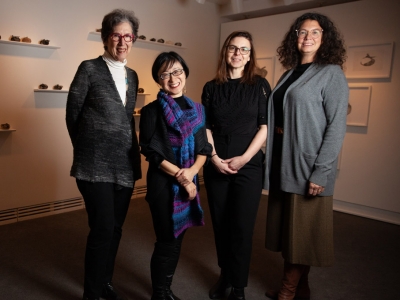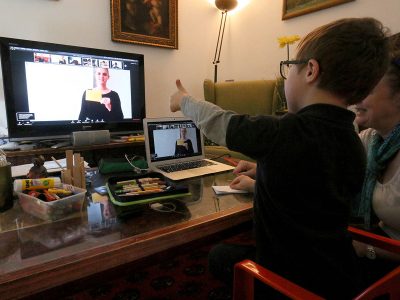By Elizabeth Howell
A typical video gamer tries to complete tasks for trophies and other in-game rewards. The benefits of “gamification” also extend to education, as this sense of micro-mastery helps students get through hard tasks like remembering technical terms.
That’s what Carleton researchers are finding after a unique faculty-student collaboration – the Students as Partners Program (SaPP) – created a cross-platform anatomy app for third-year biology students learning the parts of living organisms. Rather than memorization from textbooks, the app provides a sense of fun that keeps students engaged.
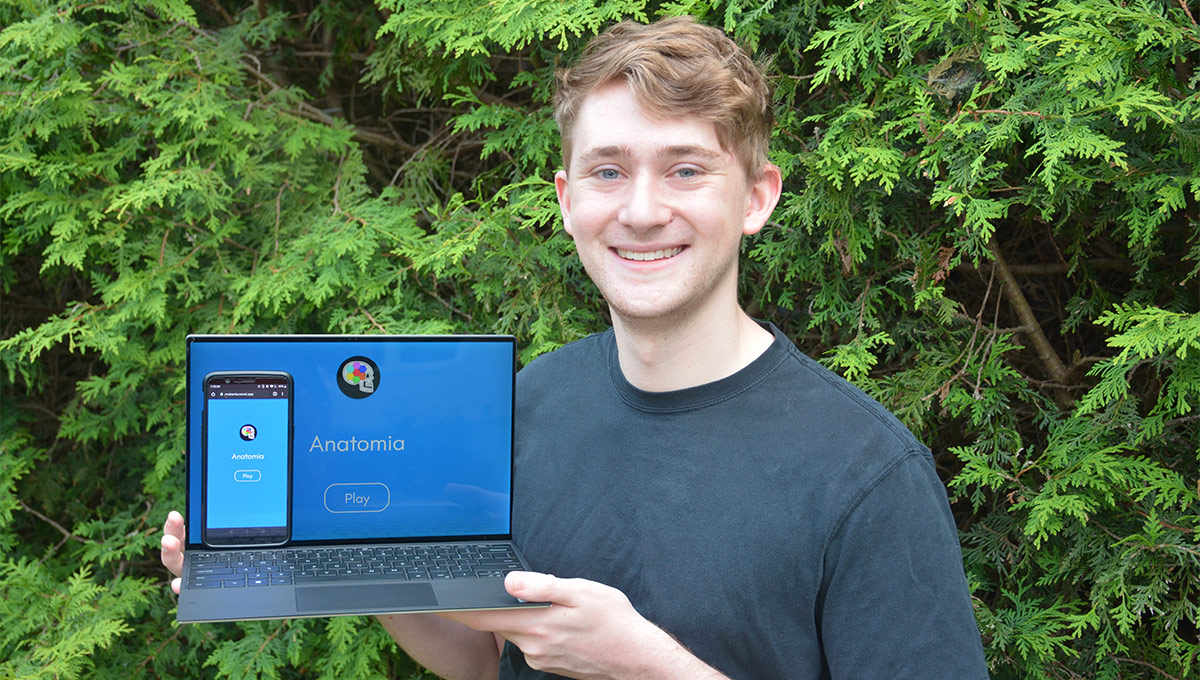
Skyler Bruggink
Developed by fourth-year computer science student Skyler Bruggink, the app was popular this winter in biology instructor Iain McKinnell’s class. McKinnell plans to use a second iteration of the app in winter 2022.
“It’s all about the thought of taking strategies of game design and applying them to student engagement,” McKinnell said.
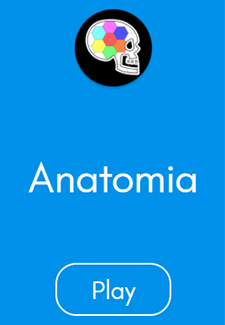
Skyler Bruggink’s Anatomia app
“Current students use material differently than many decades back when I was an undergrad, when we just sat in a lecture theatre and read a text. Our students are used to different modes of delivery and relying upon technology to engage with their material.”
For Bruggink, it was a chance to employ his computer science skills in the real world. Previously, he developed a project using drones to identify shorebirds for survey work by creating 3D-printed models for training the drone’s artificial intelligence to find the birds. The project, led by Carleton Prof. Jeremy Laliberte, attracted a $75,000 grant in large part due to Bruggink’s work.
“I think Skyler enjoyed the opportunity because this was not just another computer science assignment he was completing for a grade – Skyler was in the driver’s seat,” said Dawson, an associate professor in the Department of Biology.
“He had to solve problems and derive creative solutions to a variety of events and challenges that, arguably, a student doing an assignment for a course simply would not have to think about.”
With the guidance of Dawson and McKinnell, Bruggink worked with SaPP over eight months, on details like which questions to include in the app, what sorts of medals and trophies to include, and creating a user-friendly interface that would work for students using multiple kinds of mobile devices.
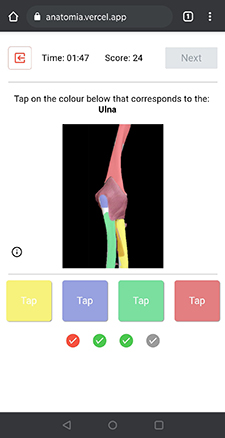 “We were trying to come up with different ways of representing a question,” Bruggink said.
“We were trying to come up with different ways of representing a question,” Bruggink said.
“We included traditional methods like multiple choice, true and false, and short answers. But we also had some really interesting new methods where we had labels on a model that you can drag and drop on to the model. Or you could tap a specific color that corresponds to a name. It was a lot more visual and more hands-on than just writing down the names of things.”
Bruggink now has feedback from the students along with their statistics on an in-class leaderboard, and the scores on different modules to see how the class did as a whole in learning different concepts. The team plans to integrate this feedback into future iterations of the app.
SaPP offers faculty, instructors, contract instructors, educational and instructional developers, and librarians the opportunity to provide a paid work experience to undergraduate students interested in teaching innovation, with more than 400 projects to date. Partnering with students in the development of the teaching and learning environment is a meaningful opportunity to develop important academic and transferable skills as well as fostering a student-centered learning environment.
Wednesday, June 9, 2021 in Biology, Innovation, Technology
Share: Twitter, Facebook

